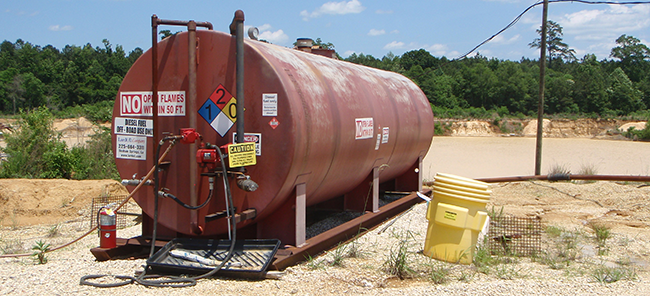Learn about professional engineer certified SPCC Plans.
A couple of weeks ago, we were out in the field conducting a Phase I ESA at a quarry, and came across a stash of petroleum tanks. Without even having to count, I saw the tanks, the sizes of them, and concluded they needed an SPCC Plan.
Guess what? Turns out they already had one! Great news, right? Well not really. They only had a Tier I plan. The plan wasn't accurate, wasn't usable since they had so much oil on-site, and overall was kind of a piece of junk. I let the buyer of the quarry know about this, and they said they were gonna get it straightened away once they became the new owner.
And that's good news, because having the wrong kind of plan is about as useful as having no plan. You're not in compliance, not adhering to SPCC regulations, and you could get in a world of trouble with the USEPA should you get caught.
Types of SPCC Plans
Just to review, here are the three types of SPCC Plans:
- PE Certified SPCC Plan (which we're discussing here)

What is a professional engineer (PE) certified SPCC Plans?
So what's different with a PE Certified SPCC Plan? Here's an overall description:
- You must have at least 10,000-gallons of oil storage capacity. This is only counting above-ground oil containers 55-gallons and larger.
- No discharges of oil to navigable waters in the past 3 years. Specifically, a single discharge of over 1,000-gallons, or two discharges each of 42-gallons or more over the last 12 months. This does not include releases related to natural disasters, acts of war, or terrorism.
- You need a PE to certify the SPCC Plan. Your plan needs a professional engineer to sign off on it. This is the only type of SPCC Plan that needs a PE signature, unless you live in a state where the PE boards say you can't self-certify.
- Remember, oil & petroleum only! Oil, gas, diesel, etc. Don't count antifreeze or diesel exhaust fluid, two common things included incorrectly.
So a PE Certified SPCC Plan is for a facility with no oil spills in the last 3 years, with total oil storage over 10,000-gallons. Pretty simple, right?
Now, there are certain states with additional oil storage requirements for facilities with oil storage capacity in excess of 100,000 gallons, but they vary and have a whole different set of rules to adhere to, which I'm not going to get into here.
If you think you might need a plan, no matter what kind, don't delay. Learn what you might need, take inventory of your oil on-site, and get in compliance. If you don't, it's only a matter of time until the USEPA comes knocking on your door. If you're unsure about your SPCC needs, let's talk. To reach out, feel free to shoot us an email at info@rmagreen.com, click here to contact us, or give us a call anytime at 888-RMA-0230 to learn how we can help.

